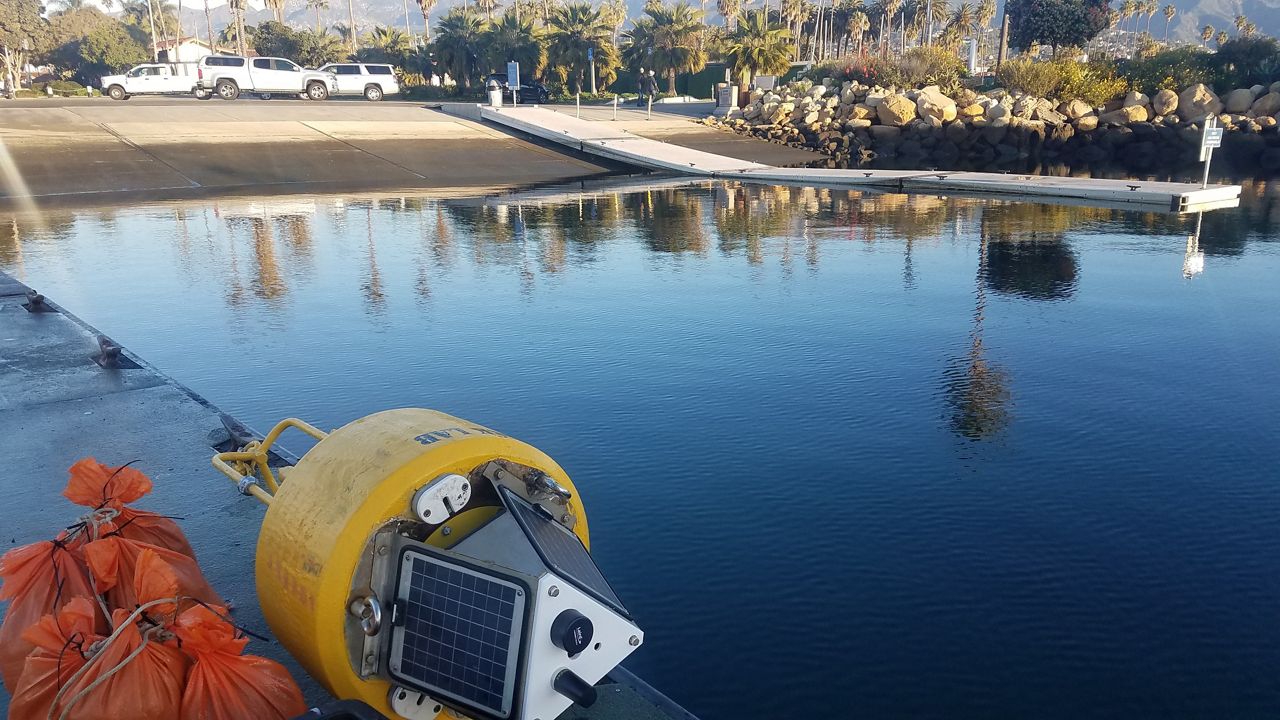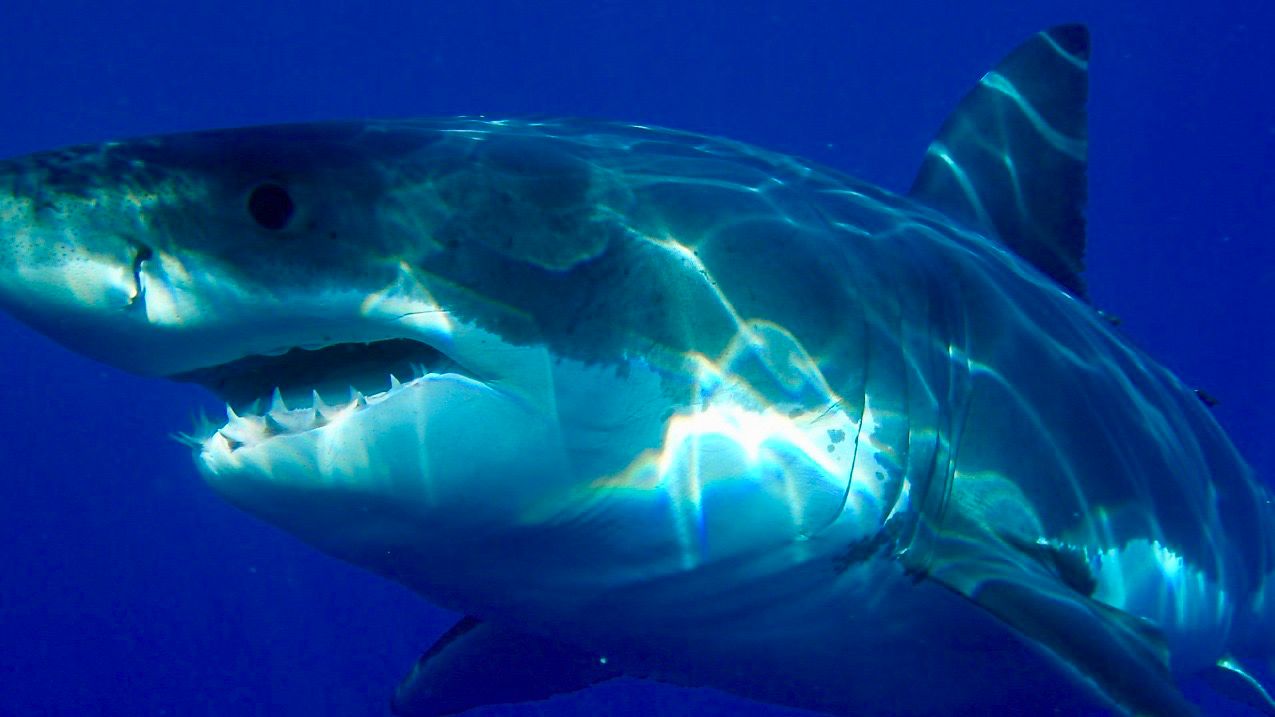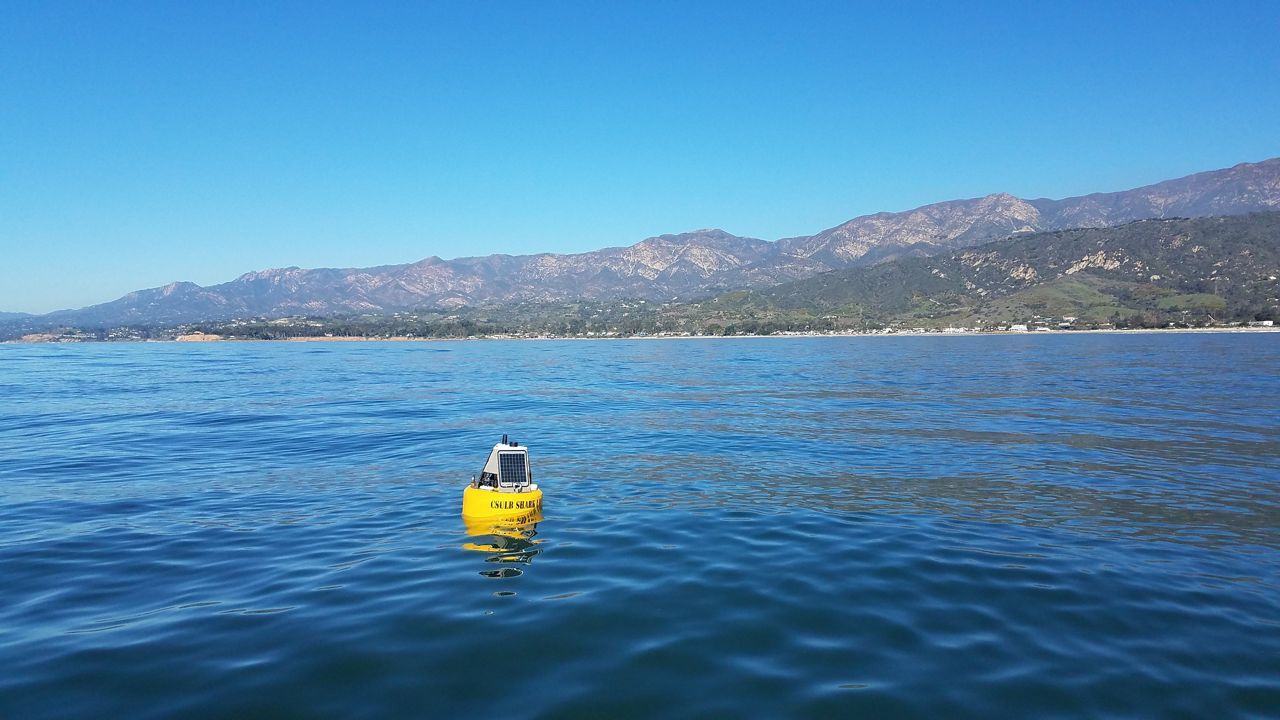A Southern California shark lab is using high-tech buoys to track sharks and keep our beaches safe.
California State University Long Beach Shark Lab created a solar-powered buoy with cell receivers to track white sharks.
CSULB calls their creation “live buoys.”
“Anytime a tagged shark swims by, they send us a text alert that this shark, this ID number, is by the buoy right now. It’s this big, and it was tagged this location and this all the places the sharks have been,” Dr. Chris Lowe told Spectrum Networks.
Dr. Lowe is the director of the Shark Lab. He says the Shark Lab installed six buoys across Southern California, including Carpinteria, Coronado, Del Mar, Huntington Beach and Long Beach.
The live buoys track the sharks using acoustic telemetry. It’s an audio receiver that transmits an ultrasonic sound in the water that sharks can’t hear.

Anytime a shark swims within 300 yards of the receiver, it will log the date, the time and the ID number. This information has been helpful for lifeguards to decide to keep beaches open or not if there’s a shark sighting.
“Right now, they’re using that information much like we do as scientists. And they’re using it to better inform their decision-making process when they should alert public and pull people out of the water.”
Before using this innovative technology, the Shark Lab had to dive into the ocean to retrieve the underwater receivers and get the data.
The problem was that it took the lab two or three days to get the data and tell it to lifeguards.
Now, the buoys communicate real-time detection information. They also float at the surface instead of being anchored underwater. Plus, they can track environmental and weather data in the ocean.

The buoys' technology comes at a great time, especially with shark attacks on the rise. The Florida Museum of Natural History says the shark attacks increased around the world in 2021, despite three years of declines.
According to their International Shark Attack File, 73 unprovoked shark bites and 11 fatalities happened last year. That’s an increase from 2020, which recorded 57 attacks and 10 fatalities.
Dr. Lowe also works on the shark report and says the data isn’t surprising.
“I think this had to do with COVID and people wanting to get back into the ocean. The more people you put in the water and with shark populations recovering, you’re going to have accidents.”
Next month, the Shark Lab is meeting with all the lifeguards throughout California in April to discuss their live buoy network and how it could be helpful to their cities.
In the summer, the Shark Lab will start their public outreach program to educate people about the science of sharks and host STEM events for kids.



